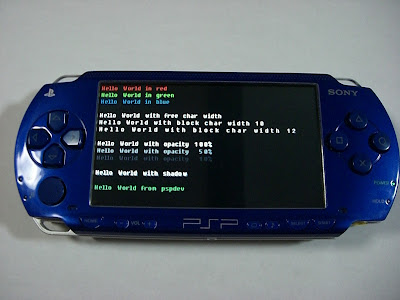Today, Sony’s PlayStation devices are mostly free from the blight of open-source software. The XrossMediaBar organizes everything in a simple interface that is easy to navigate with a controller. Facebook, Twitter, Last.fm, YouTube and more have been integrated into the operating system, allowing enormous control at one’s fingertips.
But it wasn’t always like this.
Once upon a time, Sony was friendly to the homebrew community. The original PlayStation had a sizeable, if largely unseen, army of players and programmers making their own games at home to share with friends. In 1997, Sony capitalized on this by releasing the Net Yaroze, a development-kit PlayStation for home programmers to toy with. The Net Yaroze was popular, even being used in programming competitions in the United States, Europe and Japan. Many home-developed games appeared on demo discs of PlayStation-oriented magazines.
With the coming of the PlayStation 2, Sony contined the practice by producing a kit to install and run Linux from the unit, much in the same way as one might install it onto a home computer. While the intended purpose of this kit was also to spur development, it was mostly used to convert the systems into home servers of one type or another.
But fortunes began to wane when the PlayStation Portable arrived. Many attempts at homebrewing were consequently shut down by Sony, with each new system update bringing more frustration to the homebrewers. Most stack attacks and unsigned-software methods are now ineffective, limiting what could have greatly expanded the PSP’s market with cheap, simple, innovative games–the same mechanism that powers the smartphone software market.
 |
| The rare Linux-armed Portable, seen in a laboratory. |
The death warrant was signed by the PlayStation 3 in 2010. Initially the console was distributed with the ability to run Linux without issue, as was specified in the original user license. But on April 1, 2010, Sony released a patch for the PS3 that removed the ability to install these operating systems, claiming it needed to close a loop in security caused by George Hotz, aka, Geohot, who had created a custom firmware using Linux. Lawsuits are now in progress against Sony, claiming that by doing this, the company violated its user license.
With the coming release of its newest product, the PlayStation Vita, Sony has revealed that games made to use external memory, or games running on its proprietary memory card, will not be able to access its internal memory. Conversely, games made to run on internal memory, or those downloaded from the PlayStation Store, will not have access to external storage. Any games that may need access to a memory card for saving will require that the memory card be present before the game is started. This prevents virtually all known forms of statck attacks or unsigned-code methods by closely limiting where the game software goes when in operation.
The future for homebrewing on Sony’s consoles is looking bleak. But if history has taught us anything, it’s that there is always a chance…that Sony may someday see the light and welcome its community back with open arms. But while it is entirely up to Sony to make this decision, one thing is for sure: the homebrewers will continue to operate, whether they are scorned or sanctioned.
Antique Marvels will return after the commercial with: Platformers.